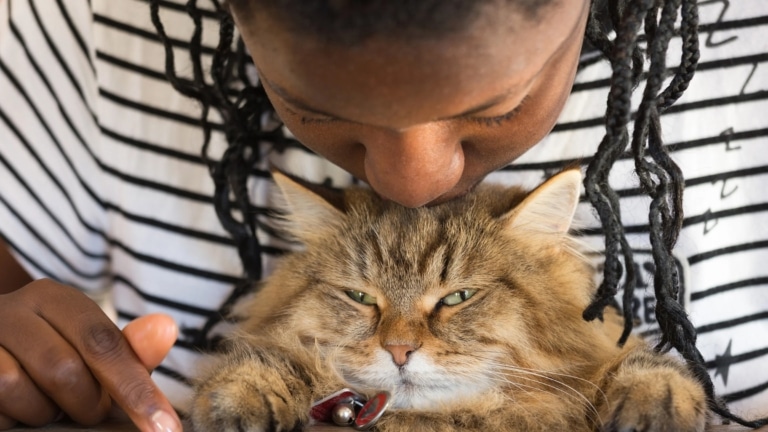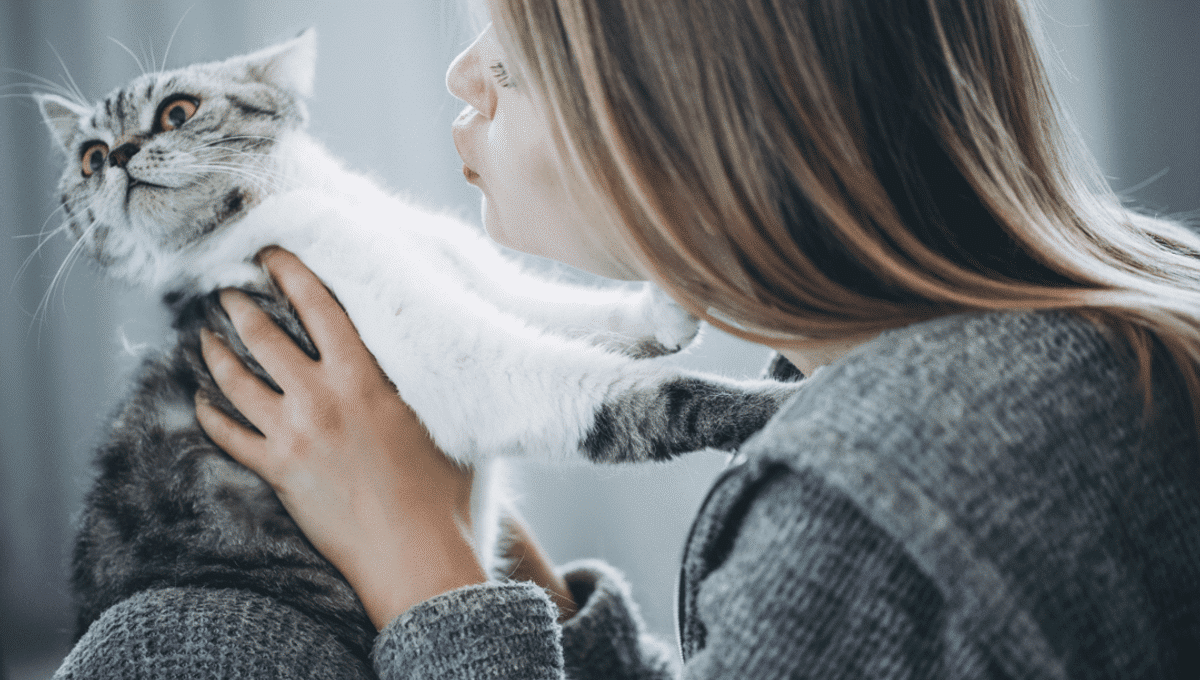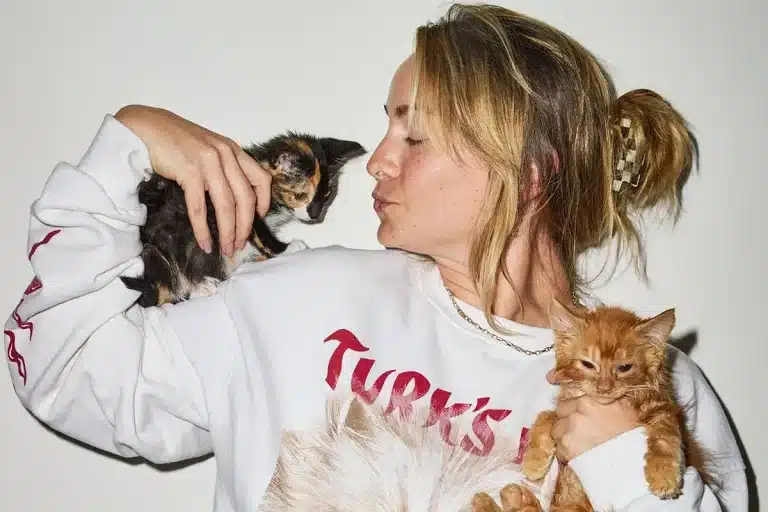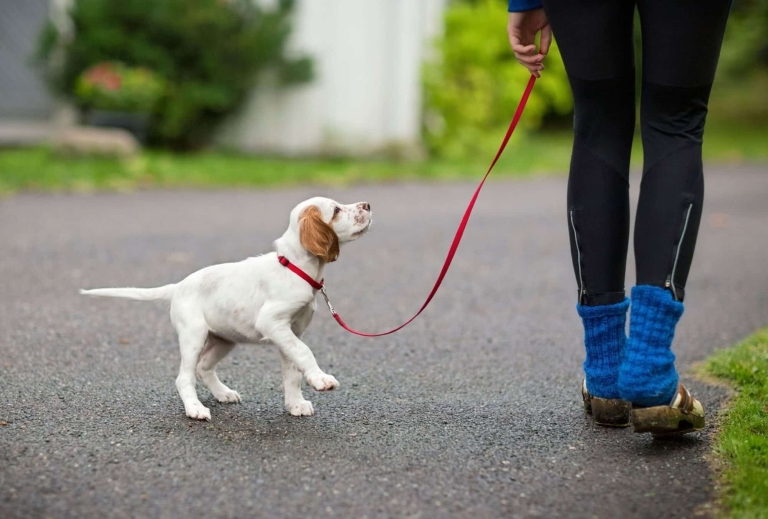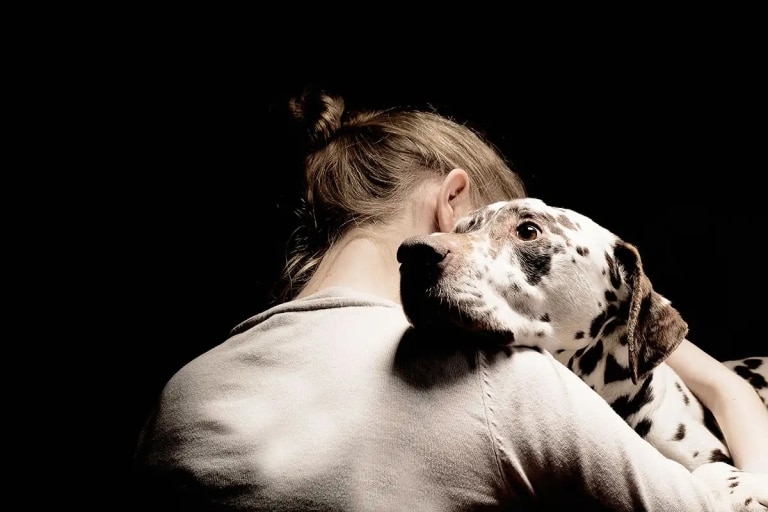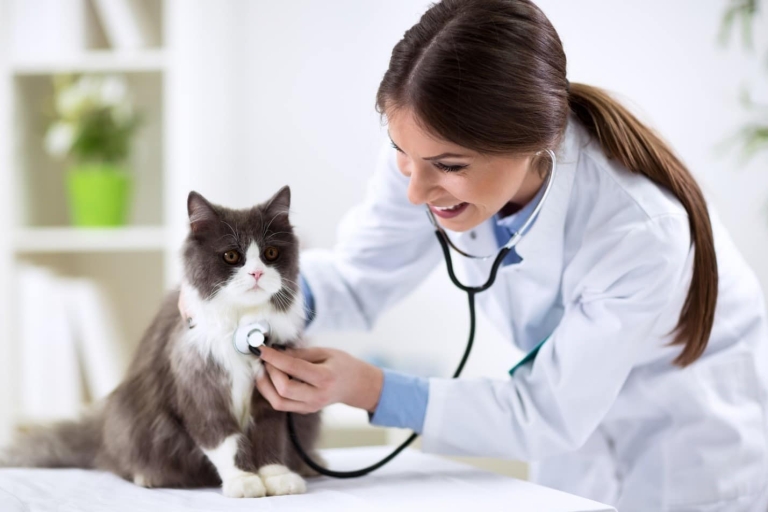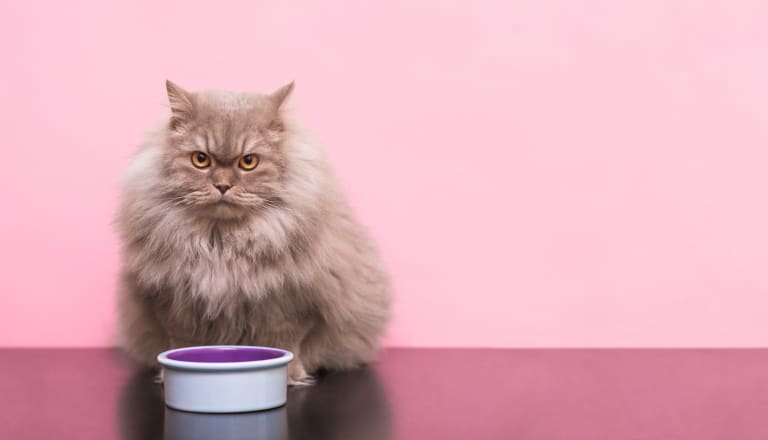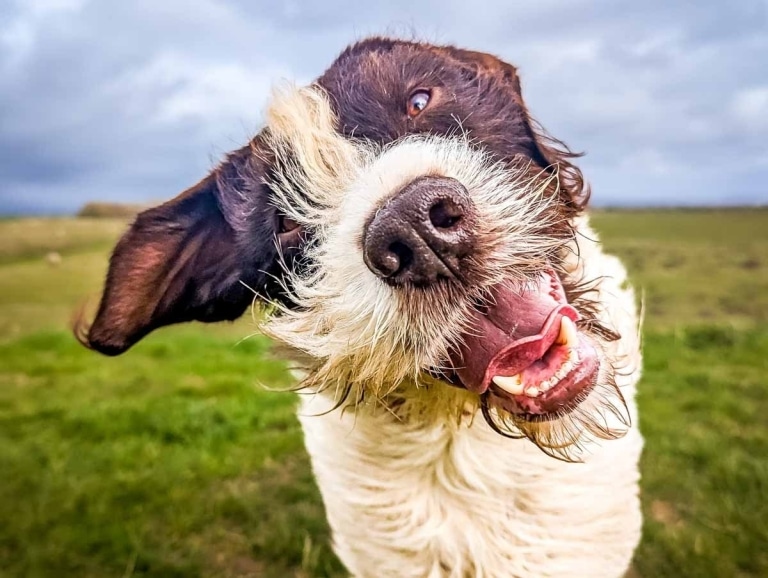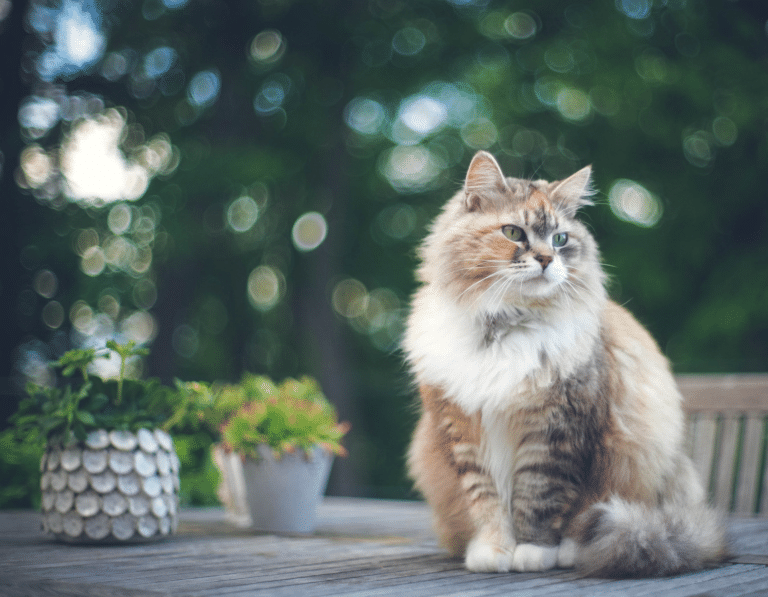Invisible microbes and the risk to human health
Cats are extremely clean animals, but their cleanliness is often deceptive. They are constantly licking themselves, which leaves bacteria-laden saliva on their fur and muzzle. The cat’s mouth contains a whole complex of microorganisms, among which may be Pasteurella multocida, salmonella or E. coli. For the cat itself they are almost safe, because its immune system is adapted to them. But for humans, a kiss on the muzzle can result in skin infections, inflammation of the gums, and in rare cases even serious complications.
It is especially dangerous for children, pregnant women and people with weak immunity. In such cases, even an innocent “cat kiss” can cause toxoplasmosis or fungal diseases. Veterinarians note: it is better to show love to a cat in the form of caressing, playing or stroking, rather than through direct contact with its face.
Is it okay to kiss a cat?
Risk to the cat and disturbance of its comfort
Kissing a cat is not only dangerous for humans, but also for the animal itself. Our saliva also contains a large number of bacteria that can be foreign to the cat. Once on the fur or mucous membranes, they sometimes cause stomatitis, irritations or digestive disorders if the cat starts licking the place of “kissing”.
In addition, most cats do not perceive kissing as a show of affection. For them, it is an incomprehensible close contact, which can cause stress. Some animals react aggressively: hiss, scratch or bite in response. Therefore, veterinarians advise respecting the boundaries of pets. A cat feels much better when its owner strokes it behind the ear, plays with it or gives it treats.
Is it okay to kiss a cat?
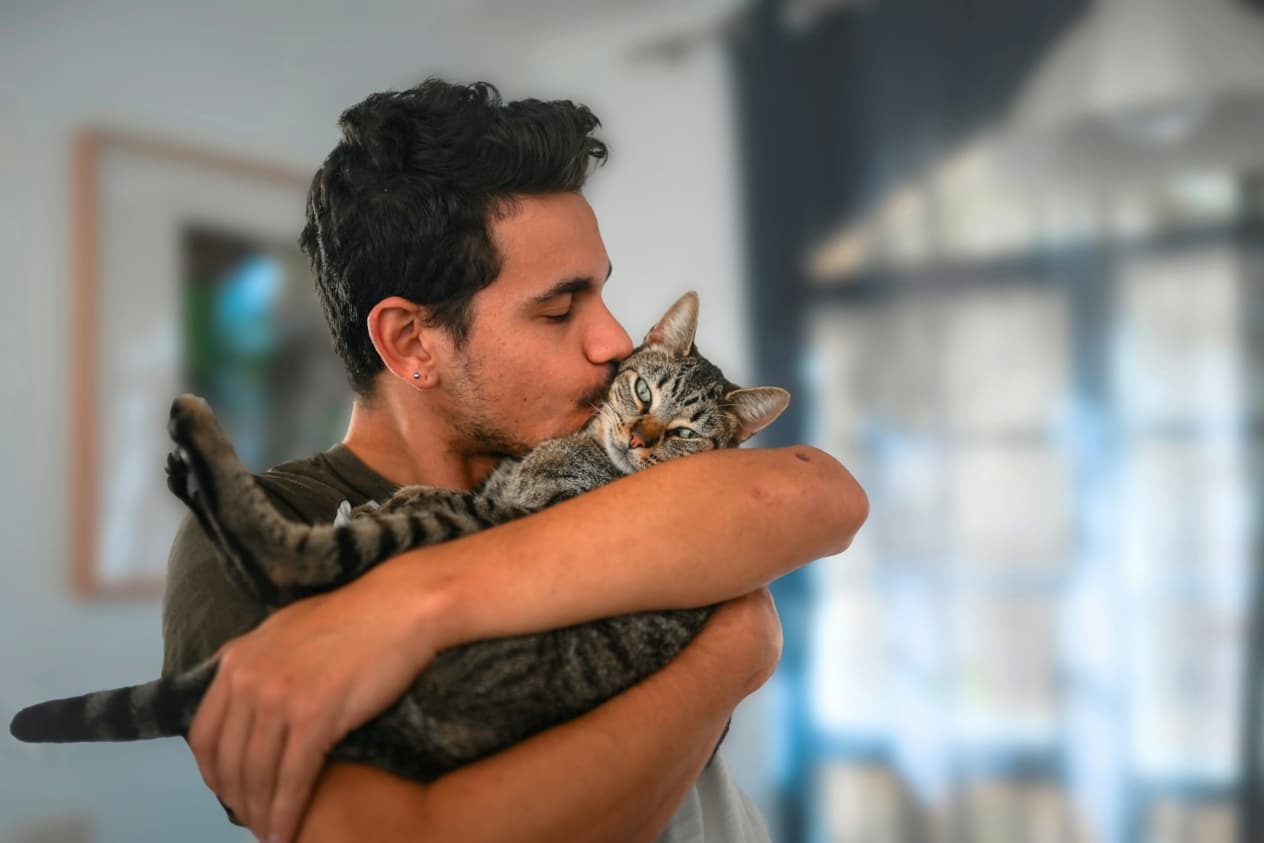
Conclusion
Kissing a cat risks both our own health and that of the Pet. Love for the animal is best expressed through care, attention and care. And hugs and affectionate words for a cat are much more pleasant than any kiss.

